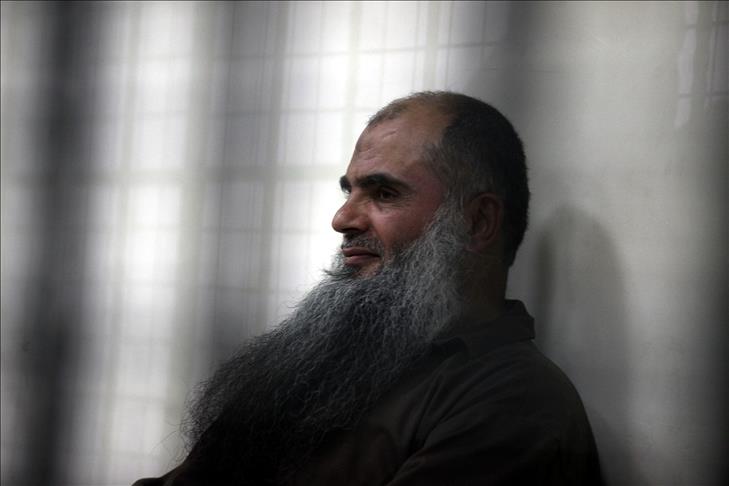
LONDON
Britain said Wednesday that hardline Muslim preacher Abu Qatada, aka Omar Othman, would not be allowed back into the country hours after a Jordanian court acquitted him of terror charges and ordered his immediate release.
Reacting to the "not guilty" verdict in his "terrorism" trial a home office spokesperson said: “He is not coming back to the UK.”
On leaving Al-Muwaqqar Prison in southern Amman, Qatada had knelt before his father and kissed his feet, an Anadolu Agency correspondent at the scene said.
He spoke to the AA of his happiness, his release and the reunion with his family. But asked about Jordan's participation in an ongoing U.S.-led air offensive against the Islamic State of Iraq and the Levant (ISIL) group in Syria, he voiced hope that "Muslims would avoid sedition and be granted victory over their enemies."
He declined to make any further comment.
Qatada sought asylum in the U.K. in 1995, after being sentenced to 15 years in prison in absentia by a Jordanian court in 2000 for plotting to carry out terror attacks on Americans and Israelis during millennium celebrations in the country.
These convictions were later thrown out because they had been based on evidence that may have been acquired through torture.
Successive British home secretaries attempted to have the Jordanian national of Palestinian heritage deported on grounds that he was considered an extremist because he had justified suicide bombings.
He was arrested in 2002, held in detention without charge, but eventually released under a control order in 2005 only to be detained again five months later where he remained in detention until 2008.
In 2008, the court of appeal said that the father-of-five could not be returned to Jordan because he would face torture and this would be against the European Convention on Human Rights. He was released under a 22-hour curfew, but again arrested six months later - this time the government claiming Qatada posed a significant risk of absconding.
After a series of releases and re-arrests, Theresa May, the British home secretary, was finally able to deport Qatada in 2013 to face "terrorism charges" in Jordan - the U.K. and Jordan signing a treaty stating that evidence gathered against him "obtained during torture" would not be used in any retrial.
www.aa.com.tr/en
Anadolu Agency website contains only a portion of the news stories offered to subscribers in the AA News Broadcasting System (HAS), and in summarized form. Please contact us for subscription options.







